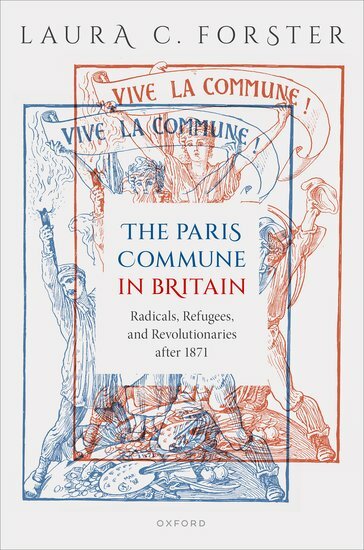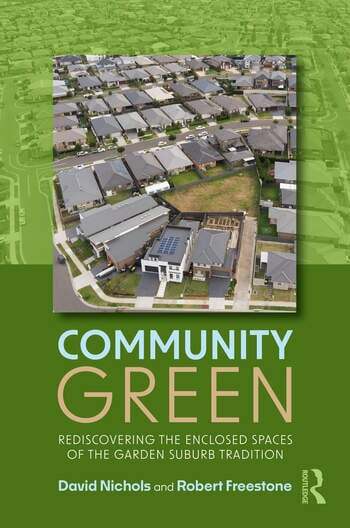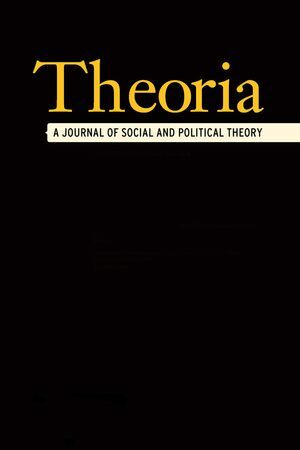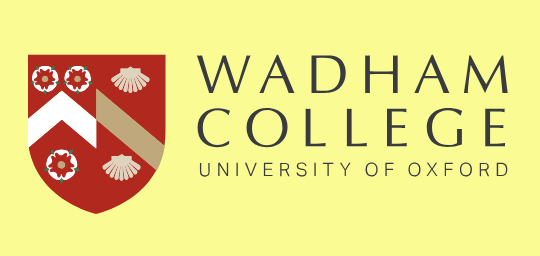Vol. 69, August 2025
Have you published something new in Global Urban History? Are you hosting a conference, workshop, or event? We'd like our members to know!
GUHP is a member-supported organization.
| GUHP2 Berlin: A Celebration of Global Urban History in Berlin
Global Urban historians from five continents gathered last month for GUHP2 Berlin, a spirited three-day celebration of scholarship and theory devoted to “Stretching the Limits” of our field. The conference was organized by the Global Urban History Project and hosted by Dorothee Brantz of the Center for Metropolitan Studies. It took place in the main building of the Technische Universität Berlin.
Among the 150 scholars who participated were fifteen of this year’s GUHP Emerging Scholars. Participants also included, many early-career scholars from previous cohorts in the program, and a wide range of senior historians as well as anthropologists, geographers, urban political ecologists, and urban theorists.
Read more on our website
|  | | The Paris Commune in Britain: Radicals, Refugees, and Revolutionaries after 1871
By Laura C. Forster
(Oxford University Press, 2025)
The Paris Commune in Britain is a book about radical ideas, and the people and places that make them. It is about how ideas are forged, propagated, and lived, and the mechanisms by which past radicalisms are mobilised in new presents. The focus is the political refugees who came to Britain following the defeat of the Paris Commune in 1871. Considering the intellectual impact of these revolutionary refugees and the longer cultural and political afterlives of the Paris Commune in Britain, the book reconstructs a transnational intellectual history alive to the intimate, embodied, spatial, active, and emotional contexts in which these political ideas were produced and exchanged. The book argues that the Paris Commune mattered in Britain. Its diffuse legacies operated across differing scales - from intimate friendships that prompted individual political conversions, to the production of international symbols able to galvanise a nationwide socialist movement. And these legacies waned and waxed in the decades long after the Communard refugees left Britain. In exploring these different scales of influence, the book makes broader contributions to modern British, French, and European social, cultural, and intellectual history, as well as urban history and the history of exile and migration more generally...[more]
| | |  | | Community Green: Rediscovering the Enclosed Spaces of the Garden Suburb Tradition
By David Nichols and Robert Freestone
(Routledge, 2024)
Community Green explores the genealogy and evolution of micro open spaces at a macro scale. The focus is the internal reserve: distinctive spaces hidden within residential blocks serving as local pocket parks. They have been a fixture of many planned residential communities from the garden city era through to the new urbanism. The treatment opens up wider connections between localism and globalism, the past and the future, and problems and potentialities in linking community initiatives to broader global challenges of social inclusion, health, food, and climate change. This well illustrated book moves through time across a wide array of case studies across several continents, injecting human stories of civic initiatives, struggles and triumphs along the way. Community Green will be of interest to readers concerned with the history, management, utilization and role of small open spaces in the urban landscape...[more]
| | | | Rethinking Histories of Indonesia: Experiencing, Resisting and Renegotiating Coloniality
Edited by Sadiah Boonstra, Bronwyn Anne Beech Jones, Katharine McGregor, Ken M.P. Setiawan, and Abdul Wahid
(Australian National University Press, 2025)
Rethinking Histories of Indonesia: Experiencing, Resisting and Renegotiating Coloniality provides a critical evaluation of histories of Indonesia from the formal period of colonisation to the present day. The volume approaches Indonesian history through the lens of coloniality, or the structures of power and control that underpin colonisation and which persist into the present. Bringing together seventeen authors from across the world, the volume offers an alternative conceptualisation of Indonesian history and lays bare the enduring legacies of and processes that reproduce coloniality....[more] | | | | The spaces of colonial towns: urban life in North Borneo, 1900s–1930s
By Michael Yeo
Urban History (June 2025)
This article explores the social history of Sandakan and Jesselton (Kota Kinabalu) by studying how their urban environments were organized and navigated. Although the neighbourhood was not officially recognized as a category of space, it argues that analogous quarters existed within the towns during the early twentieth century. As the commercial capitals of British North Borneo, the towns contained migrant people of various ethnicities that formed separate communities. The socio-spatial boundaries of these quarters were nevertheless permeable, enabling cross-communal interactions. Life in Sandakan and Jesselton was characterized by a contingency and complexity suitable for comparison with larger colonial cities...[more]
| | | | An invitation to a party? Staging urban proximity and the colonial public in nineteenth-century Batavia
By Mikko Toivanen
Urban History (June 2025)
This article examines the development of colonial public culture in Batavia, the capital of the Dutch East Indies, over the second half of the nineteenth century, focusing on two moments of extended colonial ceremony: the city’s 250th anniversary in 1869 and the inauguration of Queen Wilhelmina in 1898. The analysis shows that over the course of the century, colonial ceremonial increasingly sought to assimilate facets of local cultural practices, while also expanding spatially into a more diverse set of neighbourhoods. Nevertheless, this new and superficially more representative order still maintained a strict internal hierarchy embedded in spatial and socio-cultural boundaries...[more]
| | |  | | Statues and Democracy: The Political Dynamics of Urban Assemblage
By Amanda Machin
Theoria (June 2025)
Although they often go unnoticed, the statues that stand in town squares and city parks around the world remain significant in contemporary societies. Statues are highly political artefacts that reflect and reproduce dominant sociopolitical narratives of the past and urban imaginaries of the present and can become the focus of celebration or controversy. This article argues that a statue forms part of an ‘urban assemblage’, comprised of a heterogeneous multiplicity of material objects, inscribed text, historical narratives, living bodies and emotional performances, that emerges through processes of depoliticisation and re-politicisation. Urban assemblages are stabilised to entrench particular social relations but can always be destabilised. Illustrating my arguments with the examples of the Emmeline Pankhurst statue in Manchester and the Edward Colston statue in Bristol, I discuss the movements around urban assemblages and the possibilities of democratic interventions in the city...[more] | | |  | | The Urban Commons: Rights and Citizenship in the City from the Medieval to the Modern
University of Leicester
4-5 September 2025
Ideas of the urban commons have been important in cities throughout history. Examining their importance questions the extent to which the city a site of freedom and free expression, yet also reveals the ways that places, behaviours, and protest are policed. Furthermore, how have attitudes towards urban commons changed over time and in different places? Medieval and early modern townspeople, for example, habitually contested the regulation of common spaces such as marketplaces, while also invoking the idea of the ‘commons’, and the ‘commonweal’ in all kinds of debates around power and control. The Chartists famously exerted their right to collect and protest on sites such as Kennington Common and St Peter’s Field. Since the 1950s, the development of shopping precincts has created new types of private space, and increasingly policed appropriate behaviours in the city. What these examples reveal is that ideas of who has a right to the city, what can be done, and who can do it, constantly shift in different periods and in differing geographic locations. In exploring the idea of the urban commons, the conference also asks participants to consider issues of ownership of, and participation in the urban past. In so doing, it takes inspiration from the vitality of the impact agenda which has led to much new co-produced urban research and local history projects...[more]
| | | | Symposium: Challenging maps and exploration
Royal Geographical Society
London and online
October 30, 2025
Join us for a day of expert panels discussing the connections, historical and contemporary, between maps and exploration. This event is generously sponsored and co-organised by the Sunderland Collection. For each panel, speakers will present their thoughts on the theme via one or more maps. Then, the chair will lead the speakers through a discussion of the topic, followed by questions from the audience. At lunch, a table-top display of relevant maps will be shown in the Foyle Reading Room. The panels will be filmed and made available online at oculi-mundi.com after the event...[more]
| | | | Workshop: "Rethinking Gender in Inter- and Transimperial Contexts"
University of Freiburg, Germany
January 16-17, 2026
This two-day workshop brings together approaches that move beyond the metropole–periphery framework to examine how gender functioned in inter- and transimperial contexts. How did actors from different empires use gendered codes and behaviors in their interactions, and to what ends? Did they adopt certain gendered logics to gain recognition as imperial peers? In what ways did gender serve as a threshold for legitimacy and agency? Through such questions, the workshop highlights gender as a constitutive element of imperial power and identity—shaped by, and shaping, interactions across and beyond individual empires...[more]
| | |  | | Workshop: "Cities and Decolonization: Anti-colonial Struggles, Urban Protest, and Global Solidarities"
Oxford, UK
March 19-20, 2026
The aim of the workshop is to reassess the relationship between the city and the struggle for decolonization in the colonial world. It brings together scholars examining anti-colonial movements in specific urban contexts in the twentieth century. The workshop seeks to foster dialogue on the relationship between anti-colonial protests and colonial cities in Africa and Asia, exploring how these struggles were shaped by diverse social groups, the spatial organization of urban environments, and the tensions between competing visions of anti-colonial practice. What role did cities play in shaping the dynamics of twentieth-century decolonization? This question continues to captivate scholars across disciplines. Contemporaries perceived revolutionary movements as originating from urban hubs and radiating outward into rural regions. Aristide Zolberg evocatively characterized anti-colonial movements as “creatures with a relatively large head in the capital and fairly rudimentary limbs.”[1] In contrast, postcolonial thinkers like Frantz Fanon, significantly influenced by Marxist scholarship, insisted that “the peasants alone are revolutionary.”[2] Historian Raymond Betts proposed a nuanced interpretation, suggesting anti-colonial movements were simultaneously “rooted in the countryside and grounded in the city...[more]
| | | Calls for Papers & Proposals |
CFP: Decolonizing Archaeological Epistemologies conference
Leiden, the Netherlands
October 27-30, 2025
The opening of the Grand Egyptian Museum has been hailed as a major museological achievement, a cutting-edge and high-tech advancement with the potential to shift global discourses on the repatriation of Pharaonic antiquities. And yet, little emphasis has been placed on how such discourses entrench existing museological norms, situating categories of “antiquity”, “artifact”, “treasure”, and “discovery” through extractive, colonial frameworks. Decolonizing Archaeological Epistemologies is a conference critically examining archaeological histories and practices, proposing instead more expansive, democratic, and liberatory approaches to the past and material culture, challenging extant museological, academic, economic, and legal systems governing the ways that material culture is collected, studied, and traded. With implications spanning beyond Egyptology to archaeology, museology, and historical disciplines more broadly, this conference proposes a counter-colonial approach that rethinks the status of the historical object in the public eye...[more]
Submission deadline: August 15, 2025
|
CFP: "Crossroads: Environmental Histories on Contested Ground" Conference
American Society for Environmental History
The American Society for Environmental History (ASEH) invites proposals for our next conference! The conference will be held March 25-28, 2026, in Kansas City, Missouri. The theme, Crossroads: Environmental Histories on Contested Ground speaks to Kansas City’s rich history as a meeting point for people, goods, and ideas from across the continent. This region exemplifies the entanglement of environmental history with histories of imperialism, colonial displacement, globalizing economies, and struggles for racial justice. At the confluence of the Kansas and Missouri Rivers, where the forests of the East become the prairies of the West, the city developed on land belonging to diverse Indigenous communities, including the Kaw and Osage nations. Before the founding of the city, the area was a hub for an Indigenous-white commerce in millions of beaver pelts and bison hides. In the nineteenth century, Kansas City became an eastern terminus for transportation routes that opened the West to extraction and settlement, while Missouri and Kansas played important roles in conflicts over freedom and enslavement and the competing systems of land use and expansion that undergirded sectional conflict. In the twentieth century the city and region continued to sit at the crossroads of both local and national challenges that came with urban development, racial tensions, and environmental degradation...[more]
Submission deadline: August 25, 2025
|
CFP: "Liberties" Society for French Historical Studies 71st Annual Conference
Philadelphia, PA, USA
March 5-8, 2026
The Society for French Historical Studies invites proposal submissions for the 2026 annual meeting, which will take place in Philadelphia, Pennsylvania. In the city where the Declaration of Independence was signed 250 years ago, the theme of this year's conference is "Liberties." Plenary speakers include François Furstenberg (Johns Hopkins University), Jennifer Johnson (Brown University), and Ashli White (University of Miami). Conference sessions will take place at the Philadelphia Marriott Old City. Proposals are due September 15, 2025. We will circulate a submission portal link in early August. In the meantime, please feel free to reach out to sfhsphiladelphia@gmail.com with any questions that you may have. We invite submissions on any aspect of French history, but we particularly welcome submissions that engage the conference’s theme. We are also open to papers and panels that speak to wider European and/or Francophone geographies, such as histories of empire or colonization, transnational histories, and more...[more]
Submission deadline: September 15, 2025
|
CFP: "Disappearances and Preservations in World History" Special Issue
World History Bulletin
World History Bulletin is seeking quality research essays, experiential learning case studies, and classroom activities for inclusion in its upcoming Spring/Summer 2026 issue, “Disappearances and Preservations in World History.” The issue will explore how our understanding of the past evolves as we revisit, reconsider, and preserve history for future generations. The theme of “Disappearances and Preservations” raises important questions about who determines what is preserved and what is allowed to disappear, the criteria used to ensure preservation, the motives which inform disappearance or preservation, the evolution of techniques of preservation, the affect of the loss of historical material on future studies, and how selective preservation can prejudice current historical studies...[more]
Submission deadline: September 15, 2025
|
CFA: Session "Nonhuman Mobilities and Immobilities in the Colonial Built Environment"
VII CHAM International Conference, "On the Move – Diasporas, Mobilities and Transcultural Practices in a Changing World"
NOVA University Lisbon
April 16-17, 2026
Within the conference Panel 20: Nonhuman Mobilities and Immobilities in the Colonial Built Environment (EN) aims to critically explore the role of nonhuman agency in the shaping of colonial built environments with a focus on mobilities and immobilities. Drawing on approaches from new material and ecological history, STS studies and Actor-Network Theory explorations on architecture (among others: Law 2008, Latour and Yaneva 2008, Yaneva 2008, 2019, Kärrholm 2014, Riello 2016, Dincer 2020, Trigg 2024), this panel seeks to investigate how nonhumans (materials, animals, etc.) actively participated in the making - and unmaking - of colonial spaces. How do nonhuman-centred methodologies offer new insights into the built environment dimensions of colonialism? What happens when we recenter the agency off of humans/persons in historical accounts of the built environment? Nonhuman movement and immobility are understood as dynamic processes through which power, resistance, and transformation were negotiated within (trans)imperial frameworks. Rather than conceptualising nonhumans as passive or merely extractable bodies, this panel foregrounds their capacity to shape built environment (architectural, urban, landscape, etc.) forms and practices. How do the circulation, obstacles, or local adaptation of nonhumans connect distant sites, shaping shared yet unequal, colonial materialities? Proposals that examine, among other possible themes, how specific nonhuman actors engaged in architectural production; how their mobilities and immobilities contributed to or resisted imperial ambitions; the transformation of mobilities and immobilities or their impacts across long chronological scopes; diverse colonial and transcolonial contexts; focus on specify sources (like visual sources or periodical colonial press); are very welcomed. By situating nonhuman agency at the heart of colonial histories, this panel aims to foster interdisciplinary dialogue on the entanglements between nonhumans and imperial power....[more]
Submission deadline: September 30, 2025
|
CFP: "City Networks in Europe and Beyond" European Association for Urban History (EAUH) Conference
Barcelona, Spain
September 2-5, 2026
The conferece’s central theme is ‘City Networks in Europe and Beyond’. City networks have played a strategically important role in both the past and the present. Cities and the connections between them have been just as influential—if not more so—than states in shaping Europe and extending its influence beyond the continent, especially through colonial relationships. Although the history of Europe is often identified with states and nations, it is largely the history of its networked cities. This is clearly evident in Barcelona, a major medieval center in the Mediterranean, which also led the great leap forward of the industrial age, with crucial links to other cities, from Mediterranean and Atlantic Europe to the Hispanic colonies. And with a dense urbanistic, socioeconomic, political and cultural trajectory as a node in Contemporary European history. Since the 18th century, Barcelona has maintained a long historiographical tradition of studies about the city, considered as a substantial historical subject in itself. In this tradition, the municipal archive and the city museum have played a prominent role, along with historical research in universities and institutions dedicated to urban studies....[more]
Submission deadline: October 22, 2025
|
CFA: Session “Beyond Transcendence. Understanding Networks of Religious Belonging between Local Urban Parishes and Global Institutions since the Turn of the 20th Century”
EAUH Conference, Barcelona, Spain
September 2-5, 2026
Session organisers: Beate Löffler (Dortmund, beate.loeffler@tu-dortmund.de), Veronika Eufinger (Hannover)
It is well known that the history of the European city has been closely linked to Christianity over the centuries. There is a strong awareness for the impact of parish structures and Christian institutions – usually of a domineering denomination – on the development, transformation and resilience of the urban fabric both socially and architecturally. In recent decades, there has also been an increased understanding of religious diversity, which is lived in parallel to the dominant pattern as a matter of course. While this has stimulated both discourse and research – above all on conflicts of interpretative sovereignty – the perspectives of fields such as religious studies, sociology or architecture and urban planning still largely develop with only few overlaps. However, they all contribute to understand the social and institutional networks within the city and beyond that anchor and are anchored in places of worship and religious belonging. The panel aims at linking the different approaches to the study of religious bodies and their interaction with the urban and at gaining a comprehensive insight into the different scales applied to connect local communities to their cities, to regional religious infrastructure and global faith systems. We seek to understand how religious bodies and their social networks contribute to the resilience of their social and built environment. We invite scholars from various disciplines, including but not limited to urban history and urban planning, sociology, religious and cultural studies and architectural history, to present case studies of cooperation independent of religion or denomination, both intra-confessional, between denominations or between religious bodies and the secular world. This might include cases of handing down, sharing and/or inheriting spaces of worship or parish buildings (with or without heritage status) and networks of ecumenical cooperation up to inter-faith initiatives or address the challenges of space making for communities consisting of commuting faithful. Among others, the contributions can touch on questions like which goals or missions the networks are working towards, who the founding and supporting actors are, what makes the network an urban affair or in which way they are religious. The contributions might also address how networks affect the appropriation and utilisation of architecturally defined spaces, for example with regard to symbolic forms or the renunciation of such. Submissions (no more than 450 words) + CV should be made via the EAUH site..[more]
Submission deadline: October 22, 2025 | Fellowships, Grants, & Awards | | Editorial Fellowships at History Workshop
History Workshop
History Workshop is seeking to appoint two Editorial Fellows for the period October 2025 to September 2027. These paid fellowships are intended to support early career historians to develop their expertise in public, radical and digital history and to gain valuable experience as working as part of an editorial team. Editorial Fellows are expected to commission, edit, and publish engaging content, work collaboratively, and use social media creatively. Editorial fellowships are intended for early career historians, who must be in the third year of their PhD or beyond (including postdoctoral) and will not normally have a full-time, permanent academic post. We especially welcome applications that support our ambitions to include a diverse range of perspectives in radical history, including those from applicants of Global Majority heritage...[more]
Application deadline: August 15, 2025
| | | | Martin Lynn Scholarship in African History
The Royal Historical Society
The Royal Historical Society makes an annual Martin Lynn Scholarship award to assist a postgraduate researcher of African history. The Scholarship is worth £1,500. The Scholarship is open to members of the Royal Historical Society. Thanks to the generosity of the family of the late Martin Lynn, the RHS has established an annual award in his memory. Martin Lynn was Professor of African History in the Queen’s University, Belfast, the first scholar to hold a chair in African history in Ireland...[more]
Application deadline: September 5, 2025
| | |  | | Paid Internships in Global History
Past Wrongs, Future Choices and Globalink Research Internships
The Past Wrongs, Future Choices (PWFC) partnership— is a global partnership of universities, museums, and community organizations collaborating to tell the history of the uprooting, incarceration, and dispossession of people of Japanese descent (Nikkei) in allied countries in the 1940s – has recently been approved for three paid internships for undergraduate students, and we are hoping to recruit at least one of them from the United States. The Globalink Research Internships are fully funded (travel, accommodation, stipend) positions available students in at least their second year of study. Successful applicants will be in residence for a 12-week span in beautiful Victoria, Canada between May and October 2026. The applications are due between August 6, 2025 and September 17, 2025. We are especially looking for applicants from the United States, the UK, Brazil, and Mexico...[more]
Application deadline: September 17, 2025
| | | |